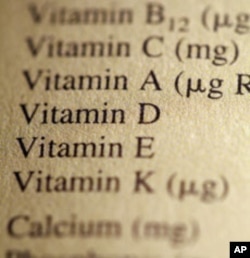Vitamin D is an essential nutrient that we get through exposure to sunlight and through diet. Without enough Vitamin D, we are at risk for rickets, osteoporosis and bone fractures.
Now, researchers have found that Vitamin D deficiency is also associated with increased risk for cardiovascular disease.
J. Brent Muhlestein, a cardiologist at the Intermountain Medical Center in Salt Lake City, Utah, looked at Vitamin D levels in 41,000 patients who visited the medical center for various health problems. He found that about two-thirds of them had low levels of Vitamin D.
Click to Listen:
"We found a significant association with future heart attacks and strokes and death in the patients who were low compared to ones who were not low in that blood test," says Muhlestein.
Over the next twelve months, one group took Vitamin D supplements to get up to normal levels. The other group did not. At the end of the year, Muhlestein tested both groups again.
A dramatic difference
"What we found is that although they all started out low, the ones who had Vitamin D that was normalized…were found to have significantly less cardiovascular events than the ones that were not normalized," says Muhlestein.
The numbers were striking. In the group of patients that took supplements to bring their Vitamin D up to normal levels, there was about a 30 percent decreased risk of cardiovascular disease.
Muhlestein says these data show that not getting enough Vitamin D affects more than just bone strength. "Now we have data that says that it's also associated with significant cardiovascular risk and that it appears that if you treat it you can significantly reduce your cardiovascular risk as well."
Although Muhlestein says a large scale randomized clinical trial is needed to confirm his results, he thinks physicians should start recommending Vitamin D supplements to patients with low levels of the vitamin. He expects that would lower their risk of cardiovascular disease.
He presented his findings at the annual meeting of the American College of Cardiology in Atlanta.













